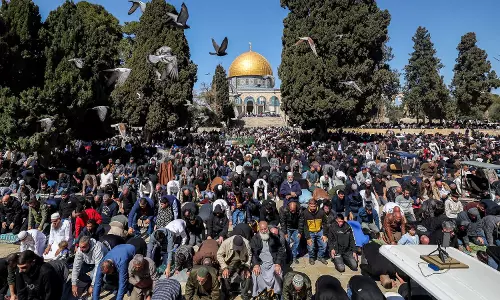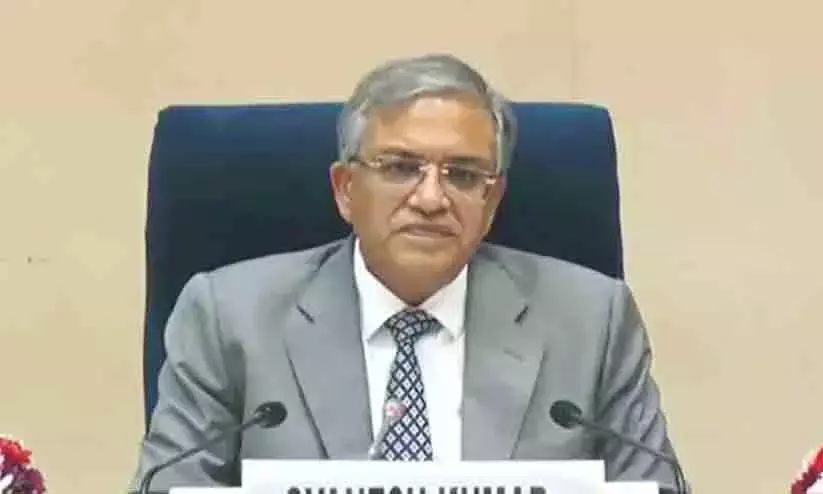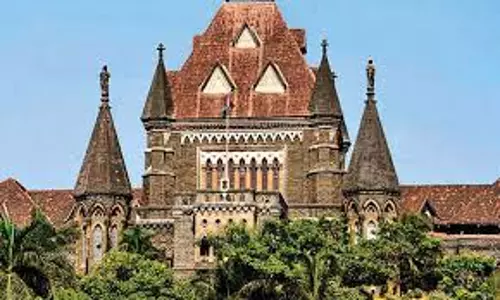
If this is not Emergency, what else is it?
text_fieldsSitaram Yechury
"The country is caught a whirlpool of fascism, plain and simple, in which any plains-peaking against the ruling class is treated as treason. For the last few years, we have been led by a cowardly collective that is intolerant towards even a faint voice of criticism and dissent. Therefore, each day brings some fresh accounts of suffering of 'emergency' presented by such a collective driven by a combination of hyper-nationalism and Hindutva. The unscientific lockdown declared to prevent the Covid pandemic, had undisputably led the nation to dire economic crisis and hunger. In spite of the country-wide lockdown, the pandemic could not be brought under control. While in the midst of this shameful, total failure, the sole focus of the regime has been on carrying out its Hindutva agenda. And anyone raising a voice against it is branded traitor and put in jail.
All the leaders who had made a democratic protest against the Citizenship Amendment Act (CAA), a legislation which struck at the root of the great idea that is India, are on the brink of arrest. The most recent arrest is that of Umar Khalid, who was in the forefront of the agitation. He has been charged under Unlawful Activities Prevention Act (UAPA), including conspiracy in the racial riots during end-February in north-eastern Delhi. In the supplementary charge-sheet attached to it, names of CPM general Secretary Sitaram Yechury, JNU professor and economics scholar Jayati Ghosh, Prof: Apoorvanand of Delhi University, activists Yogendra Yadav, and Rahul Roy have been included. This has sparked a big forore within and outside parliament. Umar's arrest came in the wake of these developments.
It was not foreseen by any one that the anti-CAA protests launched by the students in Delhi and northeastern states would escalate into so popular an agitation against the Modi government. But that was what happened; when those whose backs were broken in the flawed 'economic reforms' and those silenced behind the iron curtain of fascism, came together and stood united, 'Shaheen Bagh' tents started coming up all over the country. The initial attempts by the government to rein in the protests through threats at gun-point fell flat. When the drive to decimate the protests through vitriolic propaganda and lies failed to bear fruit, on a fine morning attacks started in north-eastern Delhi targeting Muslim houses alone. It was clear right at that time that the attackers had the support and blessings of sangh parivar leaders like Kapil Mishra. His exhortation of 'goli maaro' and other screams had been circulated then through social media. The charge sheet filed by Delhi police to Metropolitan magistrate on 29 June, also has a detailed description of the WhatsApp group named 'Kattar Hindutv Ekata' which was used by the rioters for mutual exchange of information. Several fact-finding probes, including that of Delhi Minorities Commission, corroborate this information. In spite of that, out of the 700-plus FIR's registered in connection with the case, not even one carries a mention of these violent gangs. Instead, it lists as accused the students, activists, academic scholars and politicians who had arrived for voluntary service with message of peace.
The anti-CAA strikes were indeed a blow to the arrogance of the sangh parivar government that anything could be done with the backing of its brute majority in parliament. Though the string of protests lacked the endorsement of legislatures and perhaps the mainstream media, they did clearly mark the striking power of people in a democratic order. It is quite natural for such people's agitations to disturb a typical fascist government. Ipso facto, terminating such protests at any cost was a government goal. That operation was set aflame with a planned racial attack. And what the Centre concentrated on achieving in the following days was to crush the surging protests under the cover of Covid. Most of the leading figures of anti-CAA protests like Khalid Saifi, Gulifsha Khatoon, Safoora Zargar, Meeran Haider, Shifa-ur-Rehman, Natasha Narwal, Devangana Kalita, Ishrat Jahan and Asif Iqbal Tanha were arrested or charged under UAPA, by a government emboldened by the certainty that during lockdown, people would not come out in the streets. It is as a follow-up of such measures that political leaders including Yechury have now been mentioned in the charge-sheet. There is nothing surprising in it. In the Bhima-Koregaon incident, the arrests of activists including Anand Teltumbde were of a similar pattern. The only difference now is that now protests have come to the fore, whereas such criticisms were barely visible on the unjust arrest of minority-Bahujan student leaders including the pregnant Safoora. Why this is so is a point to ponder for mainstream opposition parties including the left parties. For such a reflection may eventually lead to a broad people-based opposition thrust against the fascist regime.






















